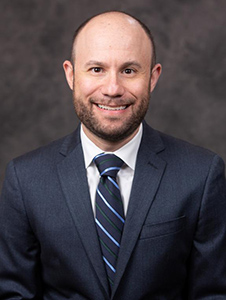In communities across the United States, social distancing measures are in place to slow the spread of the COVID-19 virus. This is necessary to flatten the curve for Coronavirus infection rates and not overburden our healthcare system as there is no effective treatment or a vaccine on the horizon. Yet, staying at home for the foreseeable future with limited social contact can have profound effects on our mental health and well-being. Human beings are social animals by nature. When social distancing leads to social isolation, feelings like loneliness, fear, anger, anxiety, or depression can surface.

Jason Lippman
For the 1 in 20 Americans already living with mental illness, COVID-19 and social distancing can bring on further bouts of symptoms such as anxiety and depression. A recent study published in JAMA Psychiatry found that social distancing had potential adverse outcomes on suicide risk. Additionally, people in recovery from substance use disorders can experience increased cravings, relapse or rising use of substances to cope with the social effects of the COVID-19 pandemic, as chronicled in USA Today. Because of crisis-induced stressors from social distancing or concerns about one’s health and economic standing, anyone can suddenly find themselves in need of treatment despite preexisting behavioral health conditions. Moreover, exposure to 24/7 media coverage of the pandemic can intensify thoughts of fear and anxiety. It is therefore recommended to limit exposure to media, particularly social media, to manage anxiety about COVID-19. Instead, designating time to get information from reliable sources like the Centers for Disease Control and Prevention (CDC) and World Health Organization (WHO).
Often, if behavioral health issues worsen, physical health effects follow, including a more compromised immune system, changes in rates of metabolism and sleep and awake cycles. People living with behavioral health conditions may also find it more difficult to fill their prescription medications and access the community supports that they are familiar with, due to program closures from social distancing. This can exacerbate risk factors for individuals living with mental illness and substance use disorders. In addition, people living in unsafe conditions can become more vulnerable during times of distress and where social distancing leads to less oversight, including victims of domestic violence, seniors at nursing homes, and runaway homeless youth in congregate shelters.
Long after we, as a collective, survive the COVID-19 pandemic, the behavioral health effects from the immediate health crisis and social distancing will be perpetually profound. Think of how other public crises, like 9/11 (19 years ago) or the Great Recession (13 years ago) forever changed our society, our outlook, how we live, and the pervasiveness of post-traumatic stress left in their wake. People who worked at office buildings near Ground Zero had higher rates of absenteeism after 9/11, as mentioned in the World Economic Forum. Suicide rates rose sharply in the aftermath of the 2007 recession, as reported by NPR. In many senses, the psychological fallout from COVID-19 will be ubiquitously long standing. Nonetheless, there are strategies that might help to alleviate the behavioral health effects of social distancing as we live through trying times once again.
Maintain and/or Seek Professional Help as Needed
To ensure that treatment and services continue through the COVID-19 pandemic for the behavioral health effects brought on by the COVID-19, telehealth services are increasingly available through video chats and phone conversations, apps and texting. New York State has setup an emotional support hotline at 1-844-863-9314, staffed by 6,100 mental health professional volunteers. Within New York City, NYC Well is available to connect to behavioral health supports at 1-888-NYC-WELL.
Stay Socially Connected While Physically Distant
Social distancing is actually physical distancing, so we need not socially isolate during the crisis. It is especially vital to have someone else to speak with and regularly contact for mutual support. Many are now using technological platforms like Zoom, Google Meet, or Skype to host virtual meetups while in their own homes. You can also stay in touch with family, friends, colleagues and peers through email, texting, and phone calls.
Prioritize Self Care
Staying healthy in times of mental distress can provide for a stronger foundation to stand on. You can stay physically active with fitness, dance, or yoga classes online. Additionally, there are a variety of ways to practice mindfulness and help bring more balance back into your life, including meditation (see A NY state of mind), deep breathing exercises or going on walks outdoors in fresh air (while maintaining social distancing guidelines of course). Cooking healthier foods at home and getting a full night of rest can help support mental wellness too.
Establish Daily Routines
You may find it helpful to keep an at-home routine of daily activities, such as mealtimes, exercise, work, educational activities and bedtime, for example. Creating a daily schedule, even a rough outline of one, might help preserve some sense of order during this time of tremendous uncertainty. You may also finally have time to delve into new hobbies or indulge old ones through arts and crafts, puzzles, board games with family or roommates, cooking and baking, reading books, writing or journaling, playing music, as well as many other creative ideas and activities that you think of.
Be Grateful for Social Safety Net Providers
We are fortunate that behavioral health and other essential providers are working tirelessly to help keep us safe, well and socially connected. In addition to essential services, community-based providers are assisting people in need with accessing food, personal care and household items during social distancing and COVID-19.
Holes in the social safety net system fall on nonprofits. Yet the sector is already operating community-based programs on diminished funding and increasing service demand. Now, during COVID-19 and social distancing, nonprofits must manage remote workforces and keep essential workers out on the front lines saving lives and preventing vulnerable people from needing emergency care.
As each week goes by, nonprofits are bleeding through resources. Furthermore, they are at risk of being inadequately reimbursed and additional funding cuts are likely on the horizon as states and localities grapple with their own budget deficits in response to the crisis. Just how long can community providers (particularly smaller ones) continue at this rate?
In assisting community-based providers to figure out different ways of achieving their missions during COVID-19, some key points to consider have comprised of:
- Innovating with new approaches to serving consumers while adhering to social distancing.
- Adapting quickly with technology to re-energize fundraising initiatives electronically.
- Communicating with donors and funders, so they know that their support is having an impact.
- Providing support to the community in general through outreach on social media and websites.
- Developing COVID-19 recovery plans to execute when social distancing relents, and the economy fully reopens again.
If Medicaid redesign and the introduction of value-based payments did not provide for enough change, COVID-19 will accelerate new and better ways of conducting business. COVID-19 is already changing how we work, provide services and access supports.
When all is said and done, what will we as a sector have learned from this experience? What has worked well and what has not during this crisis? Where can we improve? Many might see that remote options perform well and no longer need the same amount of office space. I look forward to hearing about your unique insights and lessons learned as we get there.
Finally, I am inspired by the many dedicated people and providers rising to the occasion to meet the challenges associated with the COVID-19. So many are helping people in need, while launching their own emergency and contingency plans into action. When you give thanks tonight at 7pm to the essential workers, remember to give gratitude to the behavioral health care workers helping people endure the behavioral health effects from social distancing and the COVID-19 pandemic.
Jason Lippman is Founder & Principal at Jason Lippman Solutions, LLC.




